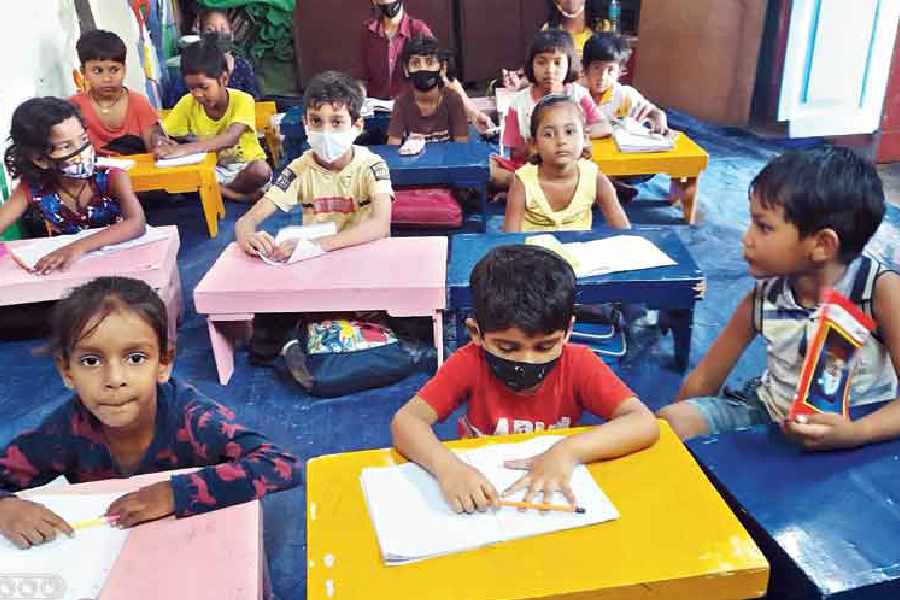Children who have lost either of their parents or a close family member during the Covid pandemic are still struggling to come to terms with the loss, said teachers of several schools.
Lack of concentration, staying withdrawn and occasional aggressive behaviour are some of the ways in which their struggles are being manifested in classrooms and beyond.
For the children and the other family members, the deaths were “sudden” and there was no closure as the Covid victims were taken to crematoriums directly from hospitals.
A 13-year-old blames her father for “taking her mother away” and not bringing
her back. Her grievances are directed towards her father.
A Class IX student has lost interest in mathematics, which was once her favourite subject. Her father, who died during the second wave of Covid, used to teach her math.
The academic performance of the student has gone down, said her teachers.
“There are students who seem more withdrawn. They do not understand why it had to happen to them and feel fate has been unjust to them,” said Damayanti Mukherjee, principal, Modern High School for Girls.
Apart from parents, some children have seen the death of grandparents or other close family members during the pandemic.
“It’s hard-hitting because during Covid, family members were staying together. The ‘immediacy’ of the deaths was more during the pandemic than at other times,” she said.
Teachers and mental health professionals said that in some cases, the surviving parent now has the added responsibility of bringing up the child while dealing with the loss of the spouse.
“The responsibility of bringing up the child now rests solely on one parent. Simultaneously, the parent has to take care of the financial needs as well. There are parents who have approached us for guidance on how to bring up the child single-handedly,” said Yasmin Panthaki, middle school coordinator, St James’ School.
Panthaki said they have spoken to the children and mentored them so that they can open up to a teacher in school if they are not able to or are hesitant to share what’s bothering them with someone in the family.
Teachers said some parents, in their attempt to care for the child, end up being overprotective and that harms the child.
“Children must also be allowed to miss. They must have a space to incorporate mourning and come to terms with it,” said Mukherjee, principal of Modern High School for Girls.
Psychiatrist Sanjay Garg said a “void” has led to an “extended grieving period”.
“The deaths have changed family situations.... In some cases, the deaths have led to post-traumatic stress disorder. Families could not perform last rites and children have not been able to overcome the fact that there has been a death in the family. It has impacted their emotional and occupational functioning,” said Garg.
He said the suddenness of the death, which disturbed the children’s normal routine, and lack of closure contribute to the stress.
Psychotherapist Farishta Dastur Mukerji said a parent’s death is much more traumatic because the “loss stays” with the child.
